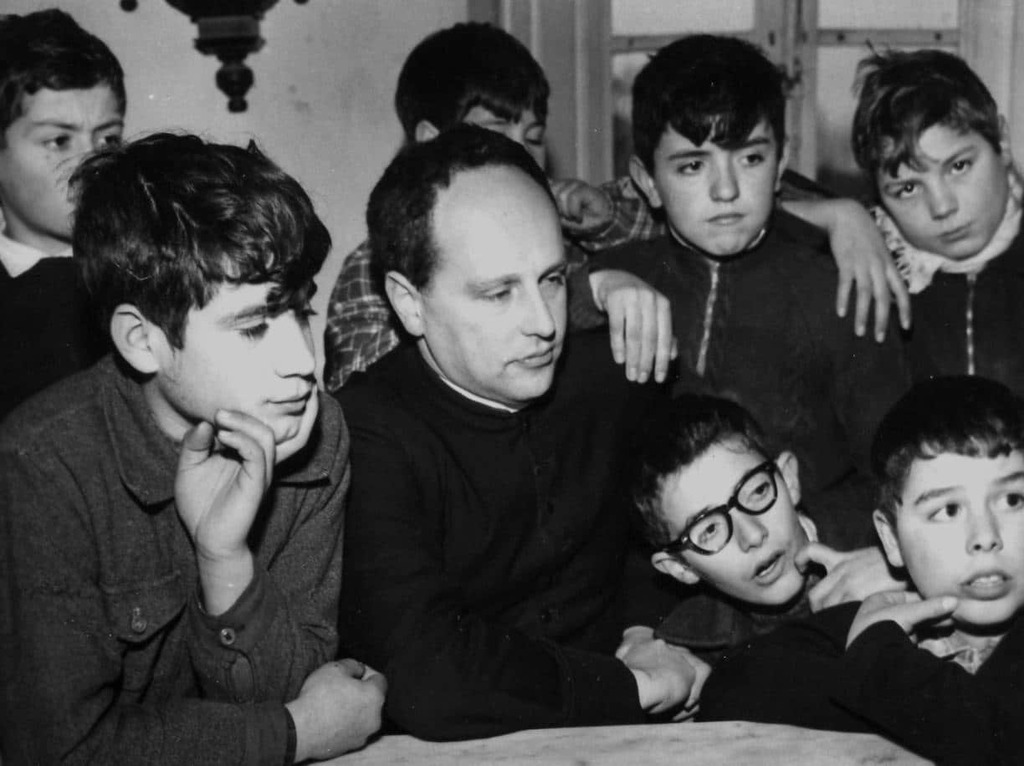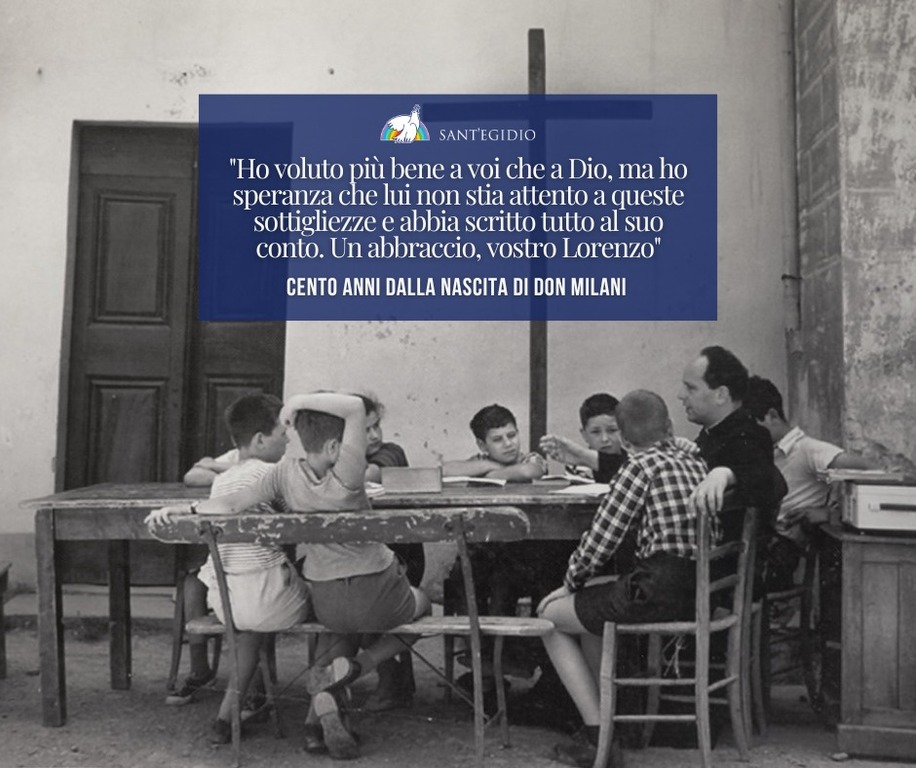Lorenzo Milani was born one hundred years ago, on 27 May 1923. His voice has never stopped speaking from the extreme periphery, which was the small village of Barbiana, in the Tuscan hills. Here, the young priest set up the Scuola Popolare, for those children who could not find a place and a listening ear in the state school. A 'timeless lesson' as Marco Impagliazzo called it.
Today, the centenary of his birth has been celebrated in Barbiana by Italian President Mattarella and Cardinal Matteo Zuppi, to emphasise the value of this Florentine priest's message, always 'on the side of the last'. A legacy shared by many, including by the Community of Sant'Egidio, with the Schools of Peace.
Born in 1923, a priest at the age of 24, in 1954 he was sent to Barbiana, a remote tiny village in Mugello, where he created his 'Popular School': he opened its doors to the children of farmers and shepherds from the surrounding countryside, and welcomed poverty and diversity. The school, based on the concept of 'I care', was set up in a couple of rooms in the rectory. The main rule was those who know more help those who know less. In 1958 he published his 'Pastoral Experiences', and in 1967, a few months before his death, the famous 'Letter to a teacher' came out.
Pope Francis said of him: "His restlessness, however, was not the result of rebellion but of love and tenderness for his children, for what was his flock, for which he suffered and fought, to give them the dignity that was at times denied to them. His was a spiritual restlessness, nurtured by love for Christ, for the Gospel, for the Church, for society and for the school that he always dreamed of as a “field hospital” to tend to the wounded, to recover the marginalised and the discarded."(video message)
In his short testament, in the form of a letter to his pupils, he wrote: "I have loved you more than God, but I hope that he does not pay attention to these details and has written everything down to his account."















